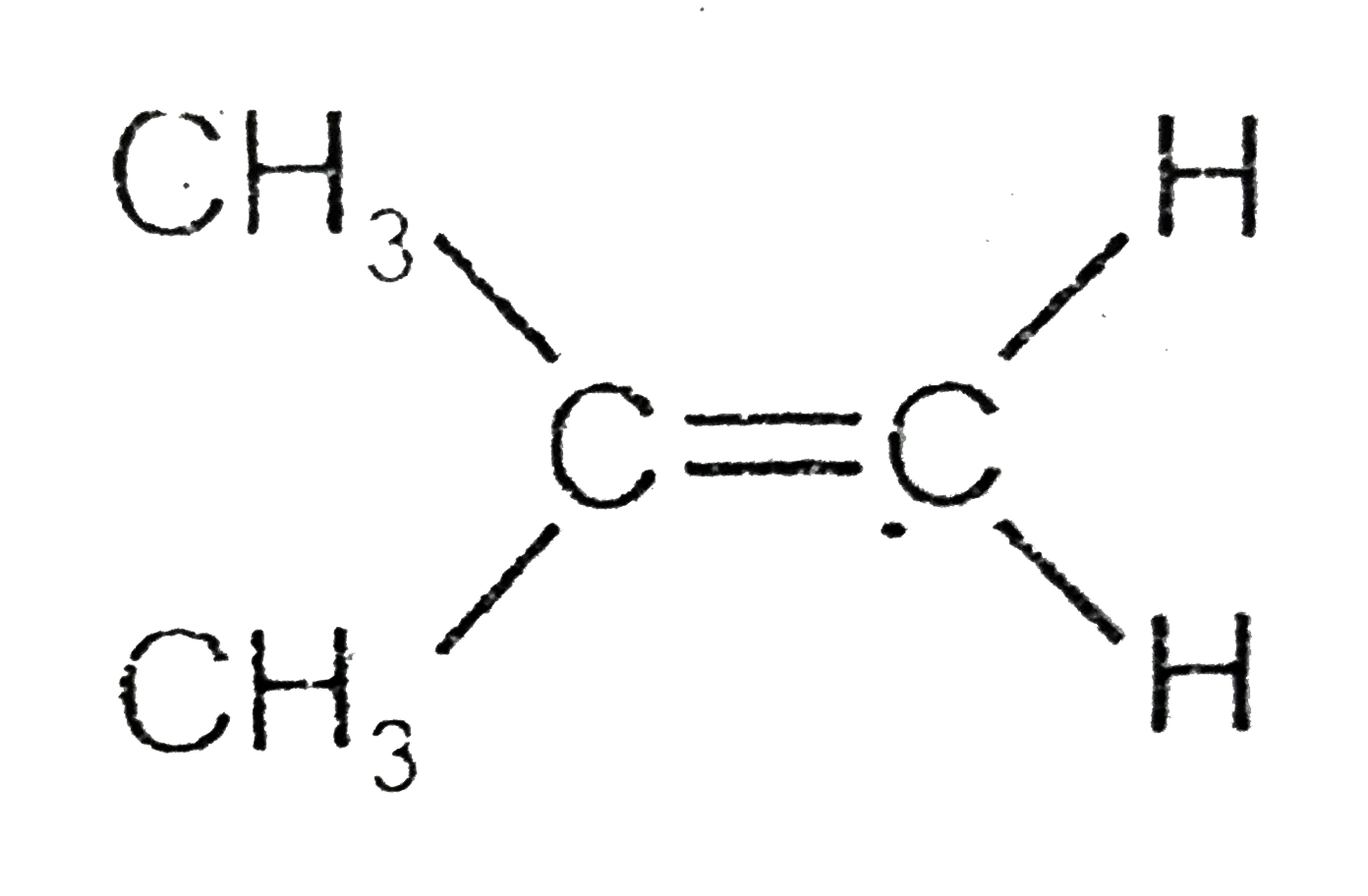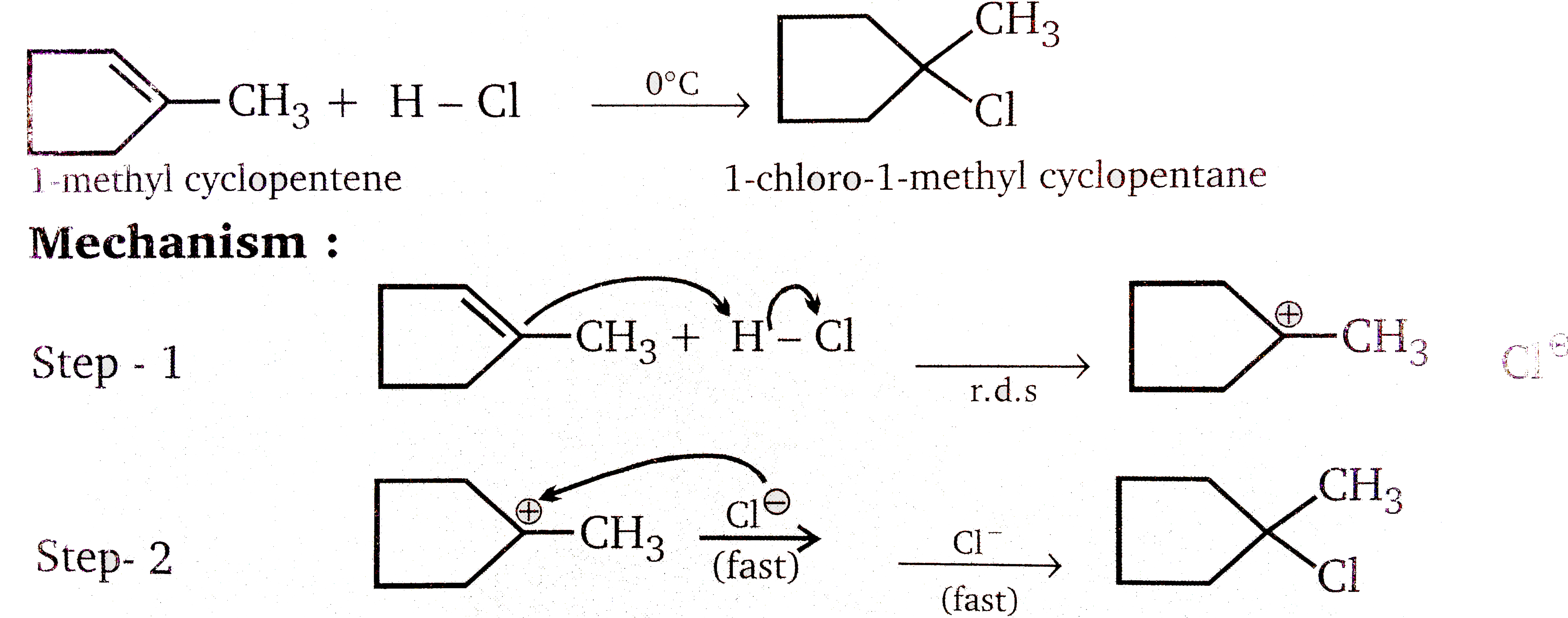Markovnikov's rule is empirical but may be explained theoretically on the basis that the addition occurs by a
carbanion intermediate
carbocation intermediate
carbene intermediate
carbon free radical intermediate
The correct Answer is:B
It is an electrophilic addition reaction, the proton adding first followed by the halide ion:

Since CH3 group has a+I effect, the π electrons are displaced ( electrometric effect) towards the terminal C atom which in consequence, acquires a negative charge. Thus, the H+ adds on the C farthest from the CH3 group and the X− ion then adds to the carbocation.
Topper's Solved these Questions
- BOOK - R SHARMACHAPTER - ALKENESEXERCISE - Follow-up-119videos
ALKENES
- BOOK - R SHARMACHAPTER - ALKENESEXERCISE - Follow-up-128videos
ALKENES
- BOOK - R SHARMACHAPTER - ALKENESEXERCISE - Follow-up-99videos
ALKENES
- BOOK - R SHARMACHAPTER - ALKANESEXERCISE - ARCHIVES17videos
ALKANES
- BOOK - R SHARMACHAPTER - ALKYNESEXERCISE - Archives42videos
ALKYNES
Similar Questions
Knowledge Check
- Question 1 - Select One
Markovnikov rule is applicable to
ACH2=CH2BCH3−CH2−CH3CCH3−CH=CH−CH3D
- Question 2 - Select One
Morgan explained linkage on the basis of
Aautosomal monohybrid cross in DrosophilaBautosomal dihybrid cross in NeurosporaCautosomal dihybrid cross in fruit flyDautosomal test cross in Lathyrus odoratus - Question 3 - Select One
Markovnikov's rule governs the addition of
Aunsymmetrical reagents to symmetrical alkenesBsymmetrical reagents to unsymmetrical alkenesCunsymmetrical reagents to unsymmetrical alkenesDsymmetrical reagents to symmetrical alkenes.
Lenz' law is explained on the basis of
View SolutionMarkownikoff's rule governs the addition of
View SolutionMeristems may be classified on the basis of
View SolutionAnti markovnikov's addition takes place in the presence of
View SolutionVladimir Markovnikov rule:
Alkenes undergo electrophilic addition reactions. It is triggered by the acid acting as a electrophile toward π-electrons of the double bond.
Markovnikov's rule states that when an unsymmetrically substituted alkene reacts with a hydrogen halide, the hydrogen atom adds to the carbon that has the greater number of hydrogen, e.g.,
 Which of the following is most reactive toward Markovnikov addition?View Solution
Which of the following is most reactive toward Markovnikov addition?View Solution

